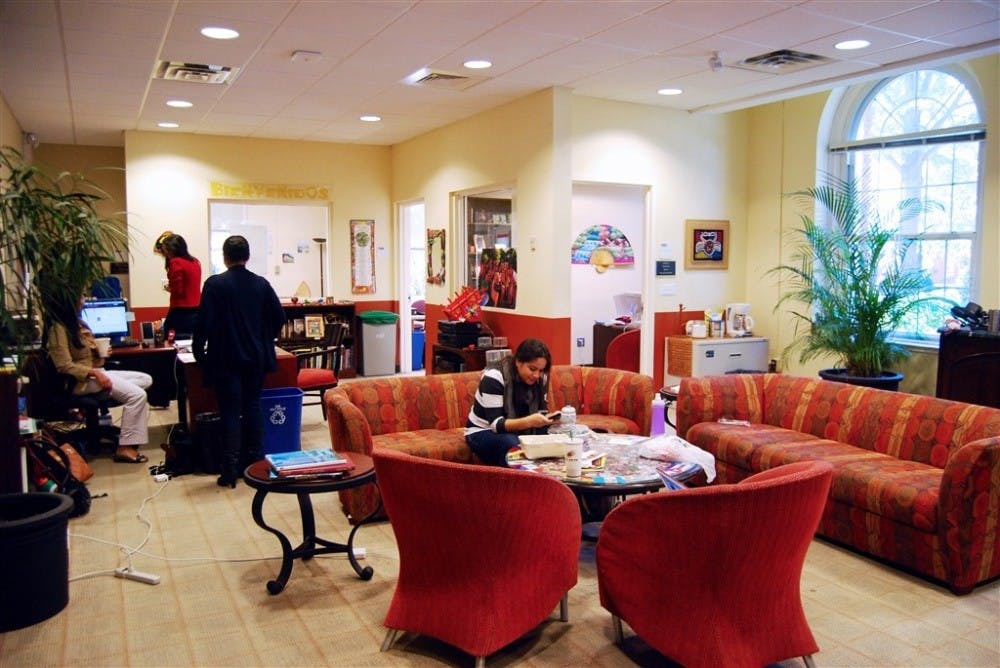Every weekday at Elon, Carlton 114 is buzzing with people speaking Spanish. El Centro de Espanol, Elon's only language center, serves as both a home for native Spanish speakers at the university and a place for students of the language to come and practice their conversational skills and learn about Hispanic culture.
When El Centro was established 13 years ago, Elon students weren't required to take a foreign language. But now that the foreign language requirement has been implemented at Elon, students have more options and are trying out classes like Arabic and Mandarin Chinese — but there's no language center comparable to El Centro, where they can practice speaking and learn about the culture from natives.
"The whole dynamic of El Centro is different (from the classroom)," said Sylvia Munoz, director of El Centro. "You can't really teach any foreign language apart from the culture. Language is part of the culture or culture is part of the language. Any way you want to see it."
Although Munoz said she firmly believes the only way to effectively learn a language is to be around native speakers and be immersed in the culture, the possibility of building centers for less spoken languages at Elon seems unrealistic.
"I would love if they could have places like this for every single language," she said. "But I do realize that the university has to put a lot of effort and money into a place like this, and the only way it has been able to survive is the numbers. If there's not enough demand to justify expenses, then they're not going to be able to do it."
Woody Pelton, dean of international programs, said there have been conversations about creating other language centers at the university, but no plans would be in place for such establishments without significant student demand.
"I don't know that we would ever be able to replicate El Centro for the different languages on campus," he said. "I just don't think that's feasible. But we do want to be supportive of other languages."
Pelton said organizations, conversation tables and other outlets are all available for students studying various languages at Elon. But, there are currently no other programs that offer incentives for students who spend a large amount of time learning about the language outside of class, as El Centro does. Students who log 140 hours in El Centro during a span of two years earn a free plane ticket to a Spanish-speaking country.
Beyond the incentive of earning transportation to experience Hispanic culture firsthand, some students say they believe that time spent at El Centro, and being around natives so often, improved their speaking abilities and taught them more about the culture than what could be learned in a textbook.
"I think what helps El Centro succeed so much is the fact there's a pretty respectable population of native speakers who come here," said junior Anthony Phillips-Spencer. "I don't know if there are that many natives for other languages at Elon."
George Guerrero, a freshman from the Dominican Republic, said the 13 or 14 native Spanish speakers who spend a good deal of time at El Centro find solace in having a place where they can share commonalities with other Latinos.
"We feel like a family," Guerrero said. "This is a place where we can share our culture and tell people who we are."
Though no goals for additional language centers have been proposed, Pelton said the university's plans for the future could affect the decision. The possibility of new general studies requirements increasing the level of foreign language students are required to take, as well as the prospect of the International Centre moving to the Global Neighborhood in North campus, could play a role in whether additional language centers should be established.


